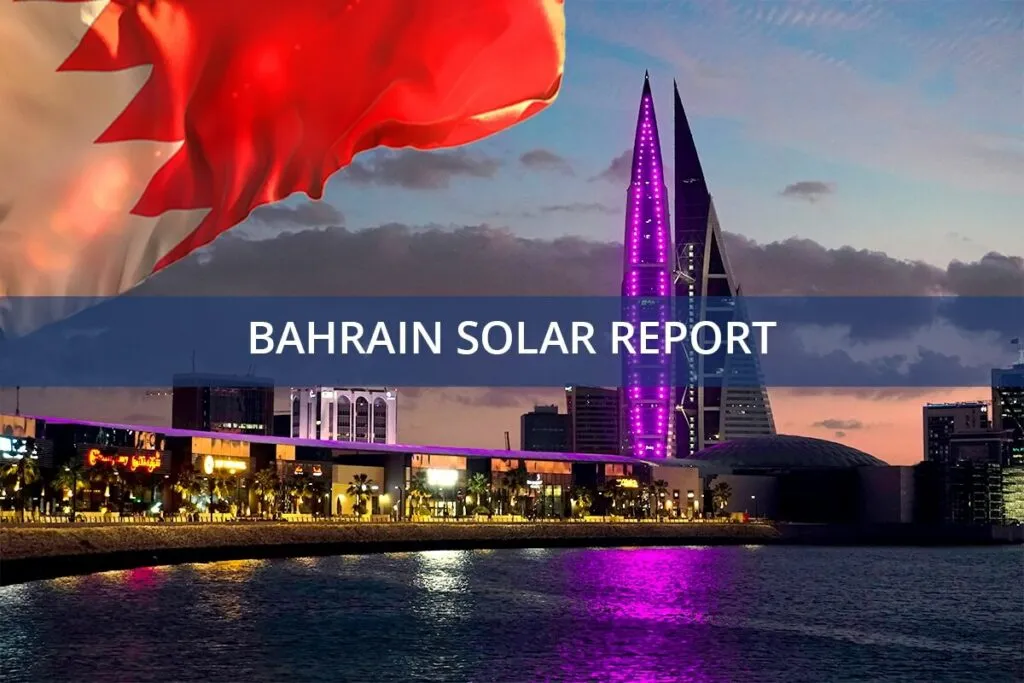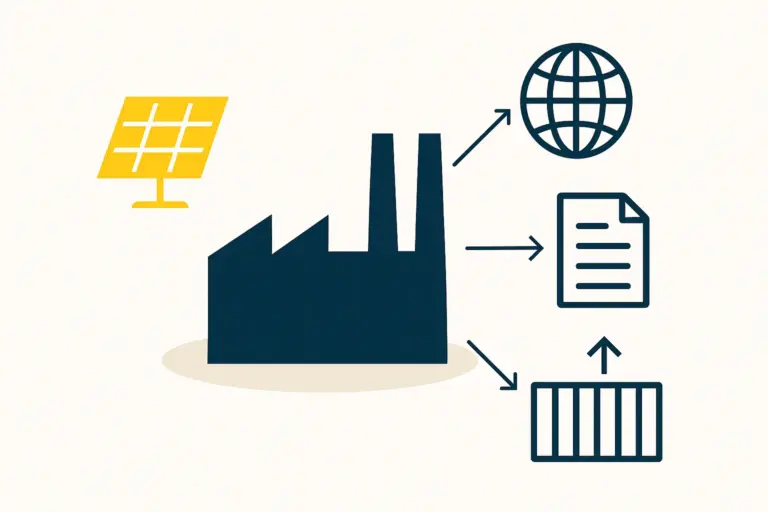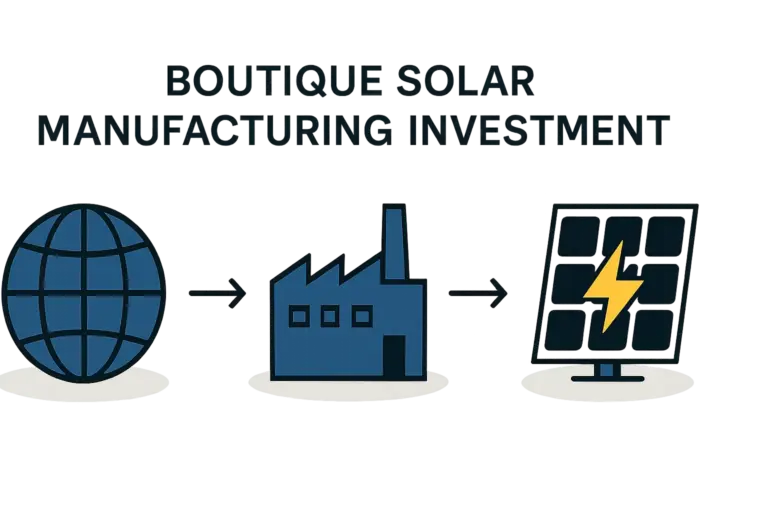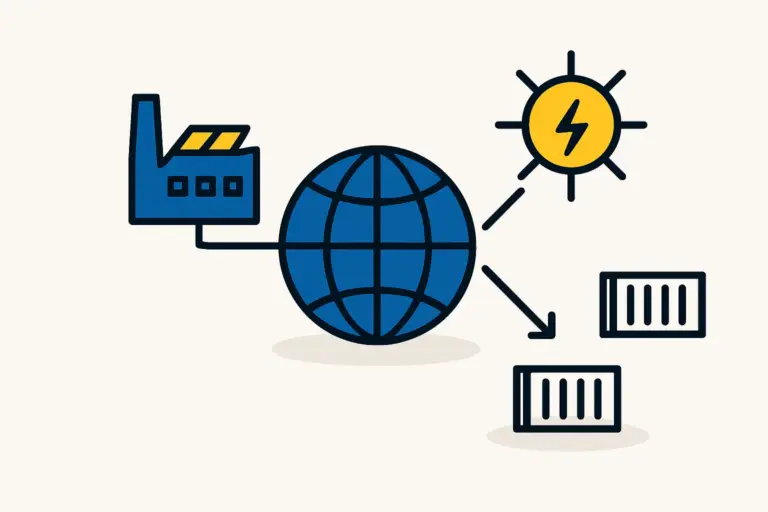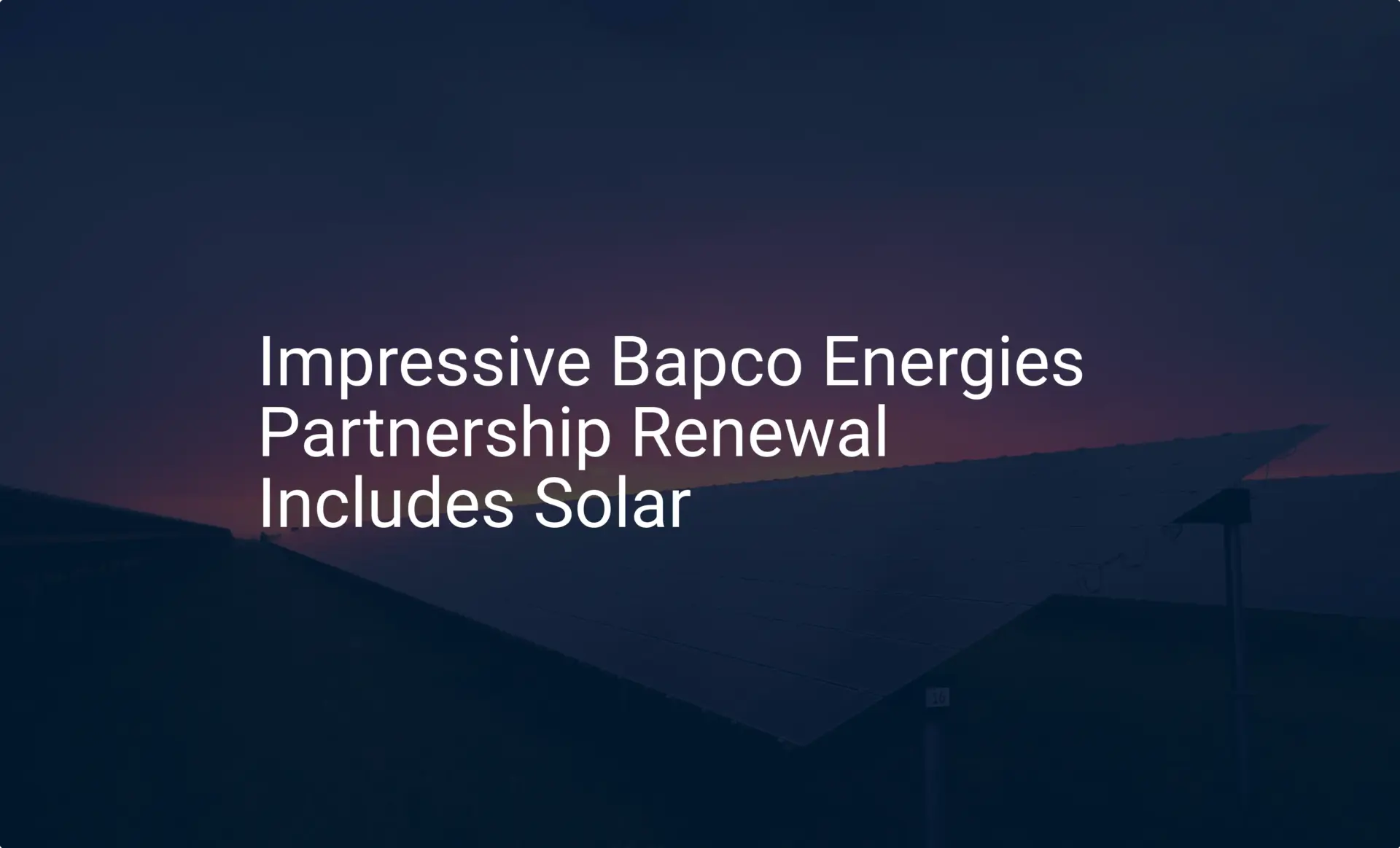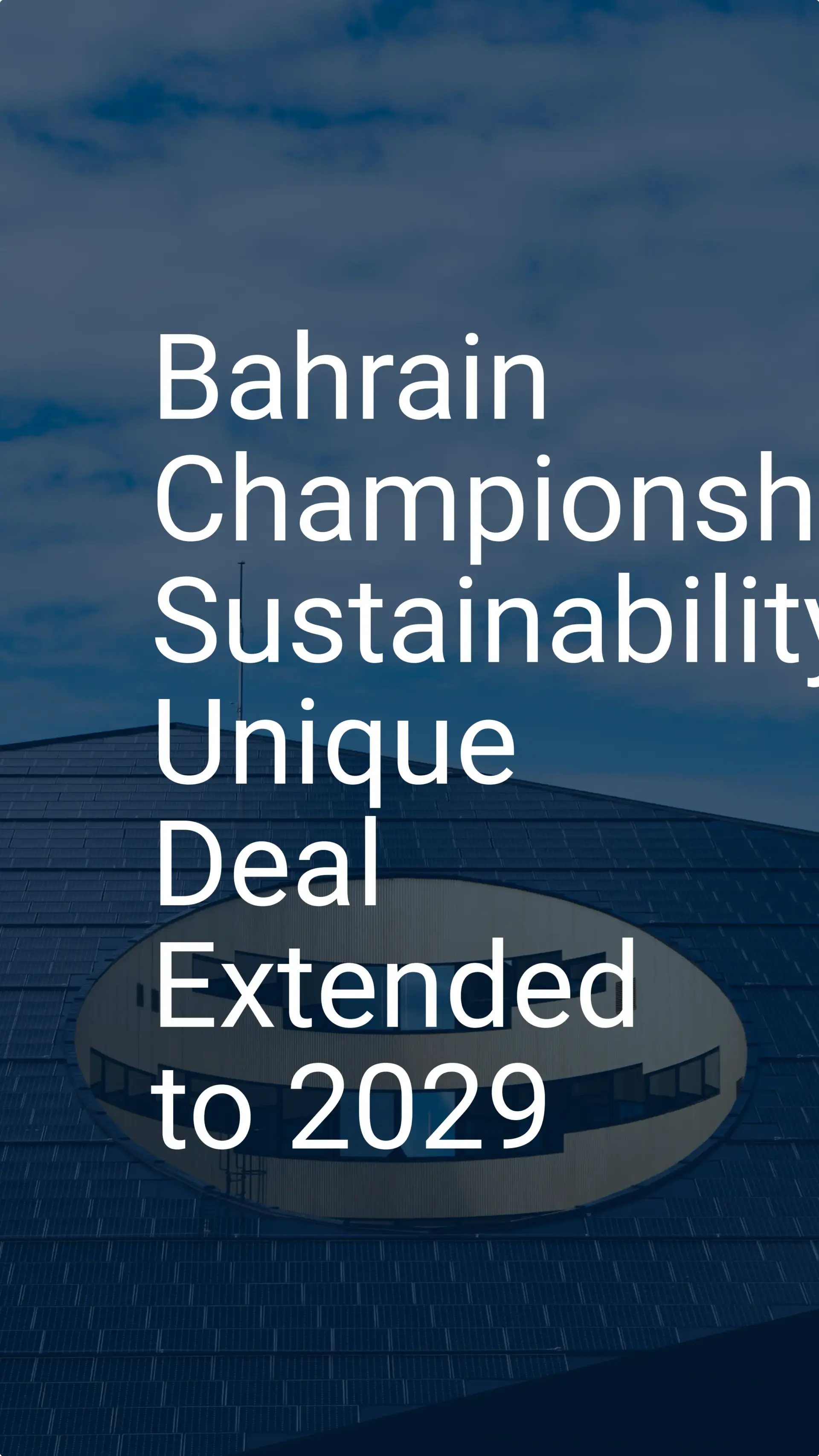How to Start a Solar Panel Manufacturing Plant in Bahrain: A Complete Guide
The Kingdom of Bahrain is actively shifting its economic focus toward sustainable energy, presenting a significant opportunity for investors in the solar sector.
For entrepreneurs and industrialists, this shift is more than a trend—it’s a clear signal to establish a local presence in a growing market. This guide provides the foundational knowledge needed to navigate this promising landscape.
Table of Contents
Understanding Bahrain’s Renewable Energy Landscape
Bahrain’s commitment to clean energy is formally outlined in its national strategic plans. The Bahrain Vision 2030 prioritizes sustainability and economic diversification, with renewable energy playing a central role. This vision is supported by a framework designed to attract investment and foster growth in the solar industry.
A key driver of this transformation is the National Renewable Energy Action Plan (NREAP). This plan sets ambitious targets for solar power generation, aiming for 280 MW of installed capacity by 2025 and 710 MW by 2035. For a manufacturer, these targets represent a clear and predictable source of local demand.
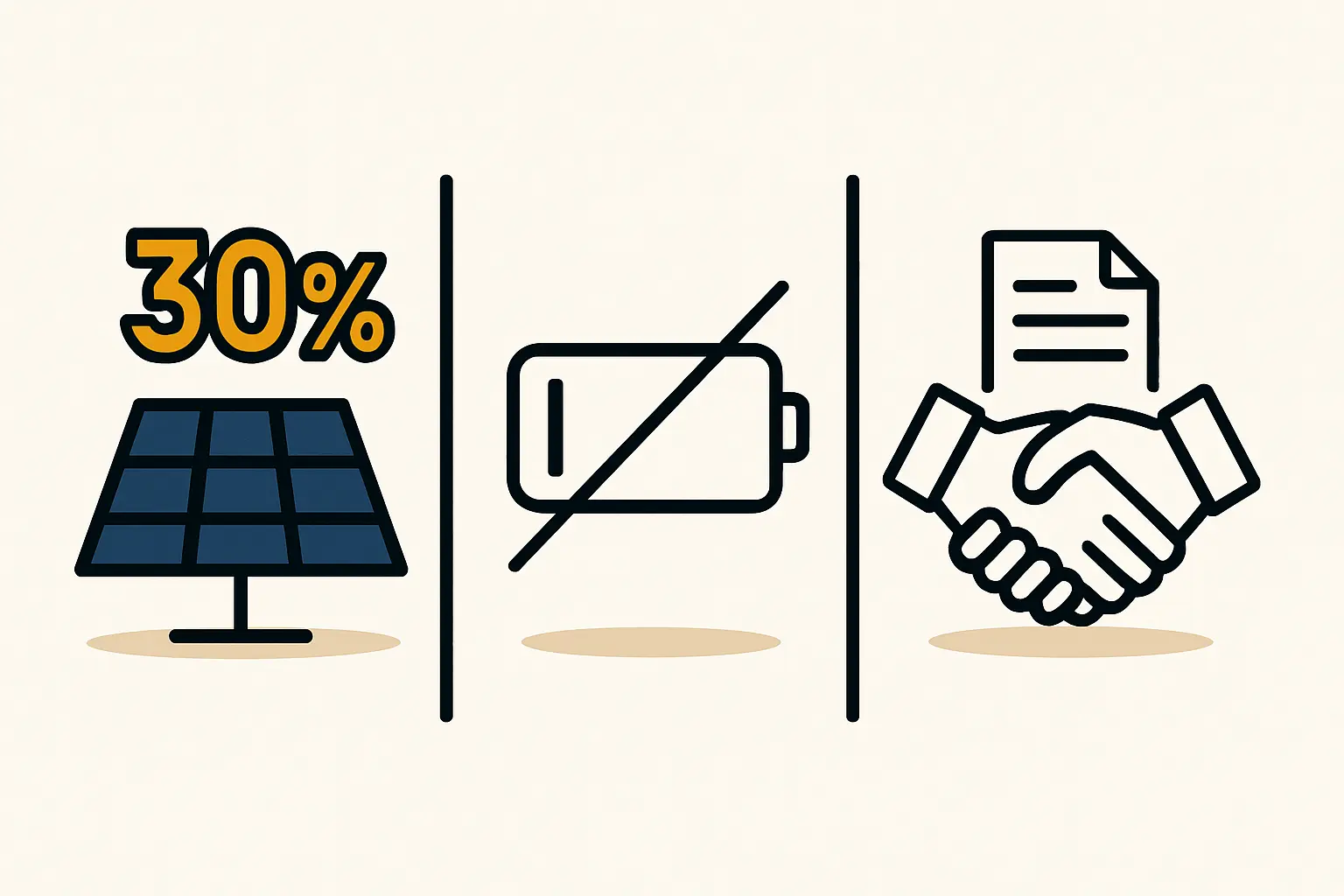 Solar Panel Production
Solar Panel Production” class=”wp-image-34381″ srcset=”https://www.pvknowhow.com/wp-content/uploads/2025/07/Navigating-Bahrains-Regulatory-Framework-for-Solar-Panel-Production-3.webp 1536w, https://www.pvknowhow.com/wp-content/uploads/2025/07/Navigating-Bahrains-Regulatory-Framework-for-Solar-Panel-Production-3-500×333.webp 500w, https://www.pvknowhow.com/wp-content/uploads/2025/07/Navigating-Bahrains-Regulatory-Framework-for-Solar-Panel-Production-3-1024×683.webp 1024w, https://www.pvknowhow.com/wp-content/uploads/2025/07/Navigating-Bahrains-Regulatory-Framework-for-Solar-Panel-Production-3-768×512.webp 768w, https://www.pvknowhow.com/wp-content/uploads/2025/07/Navigating-Bahrains-Regulatory-Framework-for-Solar-Panel-Production-3-600×400.webp 600w” sizes=”auto, (max-width: 1536px) 100vw, 1536px” />
The economics of solar power in Bahrain are compelling. The levelized cost of electricity (LCOE) for solar PV is significantly lower than that of traditional natural gas generation. This cost advantage solidifies solar energy’s position as a viable and preferred power source for the country’s future.
Ready to make solar happen?
Transform your vision into reality with our support. Whether you need hands-on assistance from our comprehensive services or deep expertise from our Premium Course, we’re here to guide your success.
The Key Players: Regulatory Bodies You Need to Know
Successfully establishing a manufacturing plant in Bahrain means engaging with several key government authorities. Understanding their distinct roles is crucial for a smooth and efficient process.
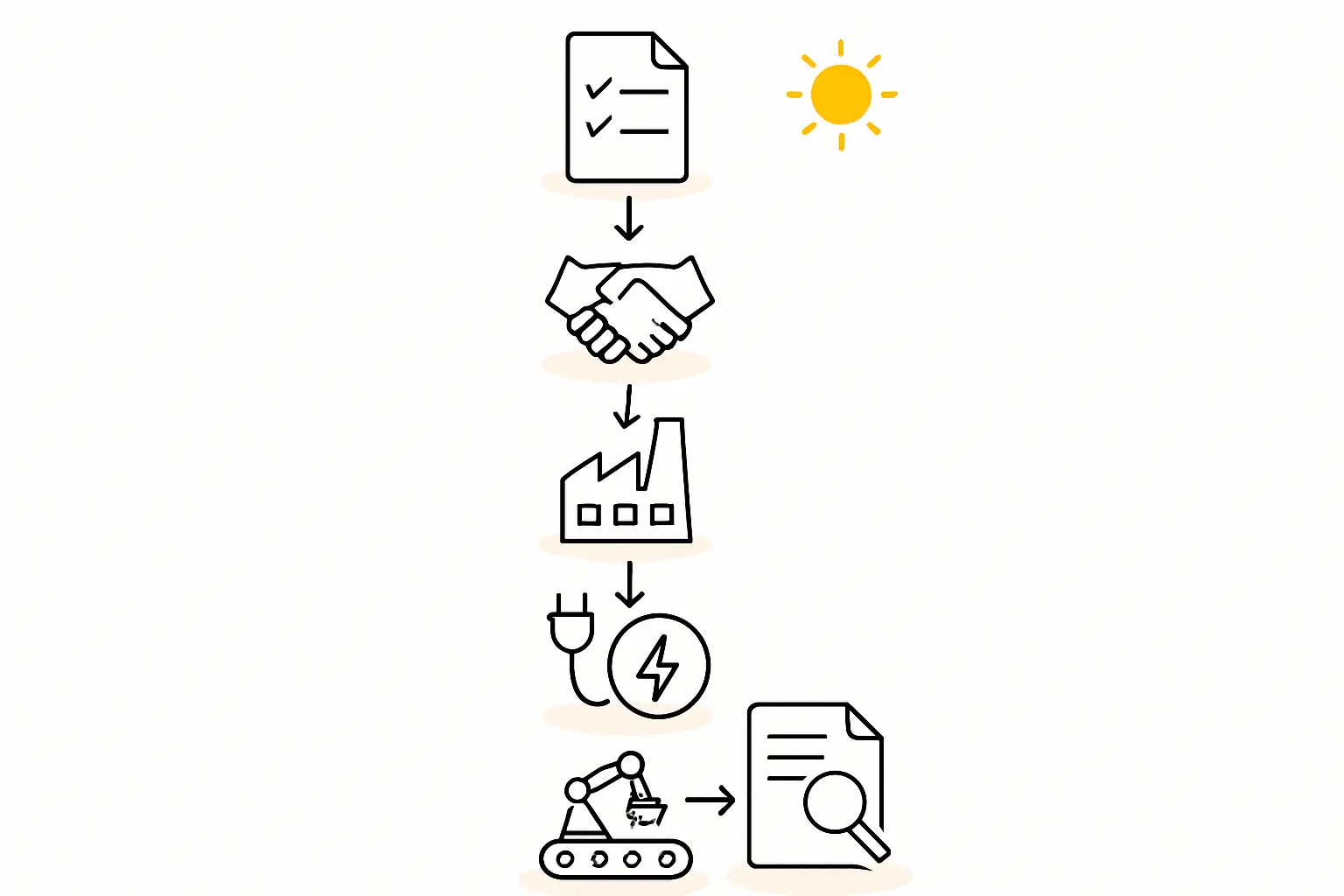
The Sustainable Energy Authority (SEA)
As the primary government body responsible for promoting and regulating the renewable energy sector, the SEA is your first and most important point of contact. The authority develops policies, oversees the NREAP, and provides guidance to investors looking to enter the market. Engaging with the SEA early will clarify national priorities and technical requirements.
The Electricity and Water Authority (EWA)
The EWA manages the country’s utility infrastructure. For a manufacturer, its role is critical, as it oversees grid connection standards and the approval process, which includes any required ewa license bahrain for on-site solar installations. The EWA also manages the country’s net metering scheme—a policy that directly affects the financial viability of solar projects and, consequently, the demand for your panels.
The Ministry of Industry and Commerce (MOIC)
The MOIC is responsible for all business registration and licensing in Bahrain. You will work with this ministry to establish your company’s legal structure and obtain the necessary Commercial Registration (CR) to operate. Its processes are well-defined and streamlined through the Sijilat portal.
The Supreme Council for Environment (SCE)
Any industrial project must comply with national environmental standards, and the SCE oversees this compliance. You will need to secure environmental permits from the SCE, which often requires an Environmental Impact Assessment (EIA) to ensure your factory’s operations meet regulations for waste, emissions, and resource management.
A Step-by-Step Guide to Establishing Your Solar Panel Factory
Setting up a manufacturing facility involves a structured, multi-stage process. The following steps outline the journey from concept to operation.
Step 1: Choose Your Business Structure
Your first decision is choosing the legal form of your company. The most common structure for foreign investors is a With Limited Liability (WLL) company, which allows for 100% foreign ownership in the manufacturing sector. Other options, such as establishing a presence in a free zone, may offer different advantages depending on your business model.
Step 2: Register Your Company and Obtain Commercial Registration (CR)
Once you have decided on a structure, you must register your business with the Ministry of Industry and Commerce. This process involves submitting required documentation, including the company’s memorandum of association, and securing the CR. This license serves as your legal permit to conduct business in Bahrain.
Step 3: Secure Approvals from SEA and EWA
While not always required for the manufacturing license itself, engaging with the SEA early helps align your business plan with national energy goals. If your factory includes its own large-scale solar installation, you will need specific technical approvals from the EWA for grid connection.
Step 4: Obtain Environmental Permits from the SCE
This is a critical step for any manufacturing operation. You will need to submit a project plan to the Supreme Council for Environment and likely conduct an EIA. This assessment details your factory’s potential environmental impact and your plans for mitigation, including waste management and pollution control. Approval from the SCE is mandatory before construction can begin.
Step 5: Lease a Factory and Warehouse
With your legal and initial regulatory approvals in place, you can secure an industrial facility. Bahrain offers a range of industrial zones with facilities suited for manufacturing. Your choice will depend on factors like logistical access, utility availability, and proximity to ports.
Step 6: Open a Corporate Bank Account
A local corporate bank account is necessary for managing finances, payroll, and transactions within Bahrain. This can be done once your company is officially registered and holds a CR.
Step 7: Import Machinery and Raw Materials
Bahrain’s customs procedures are generally efficient. However, your imported manufacturing equipment and raw materials must comply with local standards. Preparing the correct documentation, including certificates of origin and technical specifications, helps ensure a smooth customs clearance process.
Step 8: Hire Your Team
The Labour Market Regulatory Authority (LMRA) manages all workforce matters. You must register your company with the LMRA to obtain work permits and visas for your employees, both local and expatriate.
Financial Incentives and Support for Manufacturers
The Bahraini government actively encourages investment in strategic sectors like renewable energy through various support programs.
Tamkeen, the government’s labor fund, offers a Solar Financing Scheme to support businesses in this sector. This program provides financing for equipment, operational costs, and other business needs, offering valuable support for new manufacturers.
Beyond specific schemes, general government-backed loans and incentives for industrial projects may also be available. The EWA’s net metering policy also creates a stable, long-term market for solar panels by allowing electricity consumers to sell excess solar power back to the grid.
Environmental Regulations for Solar Panel Production
Compliance with environmental regulations is non-negotiable for manufacturers in Bahrain. These requirements are designed to ensure sustainable industrial development.

A key requirement is the Environmental Impact Assessment (EIA). This comprehensive study must be conducted by an accredited consultant and approved by the SCE. It evaluates your proposed factory’s impact on air quality, water resources, soil, and local ecosystems.
Your operational plan must also detail a strategy for waste management, including methods for handling chemical byproducts from the manufacturing process and a plan for end-of-life panel recycling. Adherence to both local and international environmental standards is expected and will be monitored by the SCE.
Market Opportunities and Challenges
The primary opportunity in Bahrain lies in the clear, government-backed demand created by the NREAP. This national push for energy independence provides a stable domestic market for locally manufactured solar modules.
The main challenge is navigating the administrative processes of multiple government agencies. While each authority has a clear mandate, coordinating approvals requires careful project management. Staying informed about changes in policy or regulations is also crucial for long-term success.
Frequently Asked Questions (FAQs)
Can a foreigner own 100% of a solar manufacturing company in Bahrain?
Yes, the manufacturing sector in Bahrain is open to 100% foreign ownership. The most common legal structure for this is a With Limited Liability (WLL) company.
How long does it take to set up a solar factory in Bahrain?
The timeline can vary significantly depending on the project’s complexity. Initial business registration can often be completed within a few weeks. However, securing land, obtaining environmental permits, importing machinery, and commissioning the plant can take several months to over a year.
What are the main challenges for solar manufacturers in Bahrain?
The primary challenges include navigating the multi-agency regulatory approval process, particularly for environmental permits that require detailed assessments. Additionally, while the local market is growing, manufacturers must plan for competition from established international suppliers. Careful planning and strong local partnerships can help overcome these hurdles.

